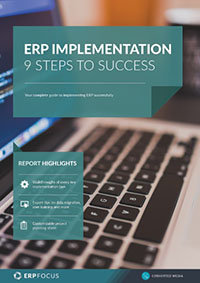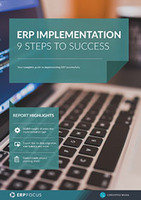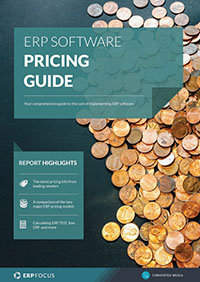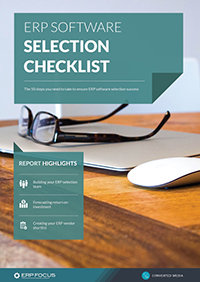ERP and project accounting software integration
Enterprise resource planning tools constantly introduce new features. With these ongoing updates, there is a growing allure to adopt these new modules or merge different packages to maximize the returns on your ERP system accounting investment.
One of the key areas where this yields significant benefits is the convergence of ERP and accounting software. When done correctly, it can streamline your business operations significantly. Let's delve deeper into this topic to ensure a seamless integration of your ERP and accounting systems.
Differences between ERP and project accounting software
The lines between many software packages are blurring, especially as firms realize that related functionality could lead to a better-performing system or an additional revenue stream This is why we’re starting to see more Googling of questions like ‘Is QuickBooks an ERP system?’ and ‘Best accounting modules in ERPs'.
The best way to differentiate ERP and project accounting software is by looking at an ERP as a larger, business-wide package that covers resource management and utilization outside of financials. ERPs can include functionality such as workforce and HR tools, metric tracking across a business, customer support tools, and much more. On the other hand, project accounting software is more narrowed down to financial aspects alone. They handle payroll, balances, accounts payable, sales orders, ledgers, timesheets, etc.
The growing trend of ERP and accounts integration can be attributed to the fact that they both utilize the same financial data to generate their reports. An ERP also provides companies with context around aspects that can impact business finances, such as productivity, product lifecycles, and some supply chain data.
When you start looking at very robust ERPs, they include many of the tools and functionality that accounting software provides. So, we’re starting to see ERP accounting modules replace separate software packages in some instances.
Best practices for integration of the two
There are a few things to consider when you're aiming to combine ERP software with other accounting software. Let's take a look at some of the most crucial considerations, ways to safeguard your process, and points to ponder as you grow. Here are the top three things to be aware of before you begin:
- You need a common data foundation. Not all systems will accept the same files and data types. Review your existing software and determine what works and where potential issues could prevent you from using the same database, report exports, data entry points, etc.
- Finalize integration points before you start. After reviewing your data, trace its path from collection to the desired outcome. Look at data sources and targets, and areas where data flow is one-way or bi-directional. Then consider two timing elements that must work in tandem: how frequently data is added/updated and how often your analysis is run.
- Every user needs a voice. In the process of integrating ERP and accounting systems, many teams will be impacted. Assign leads from each group to communicate with the project manager to ensure everyone's needs are addressed, and no functionality is lost or replicated without people being aware.
Lastly, your integration could be heavily influenced by the type of systems you’re using. Many project accounting tools and ERP accounting modules store contact information differently. You might have a single record per customer, multiple people under a unique profile, or various hierarchies and subsets.
Review this aspect carefully as you plan your integration. Misunderstanding changes here can lead to record loss and other significant issues.
Slow and steady wins the race
Business software is growing more complex, user interfaces are being simplified, and almost every software maker is trying to expand into new verticals. These trends are leading to greater availability of software like ERP and project accounting, but the business impact of software overlap can be confusing.
When you’re considering project accounting software integration, whether you’ve got separate systems or just want an ERP module, take your time, talk with everyone you can, and plan for both a smooth and bumpy transition to protect operations.
Free white paper

ERP Implementation: 9 steps to success
The 9 proven steps you should follow when implementing ERP

Featured white papers
-

ERP Software Pricing Guide
Get the latest pricing information on over 80 popular ERP systems, and learn how to budget for your ERP project in our free guide
Download -

60-Step ERP Selection Checklist
Get the comprehensive checklist for your ERP selection project
Download -

ERP Implementation: 9 steps to success
The 9 proven steps you should follow when implementing ERP
Download
Related articles
-
![3 Tips for Achieving Buy-In for Your ERP Integration [by pressfoto on Freepik] 3 Tips for Achieving Buy-In for Your ERP Integration [by pressfoto on Freepik]](jpg/3%2btips%2bfor%2bachieving%2bbuy-in%2bfor%2byour%2berp%2bintegration%2b%255bby%2bpressfoto%2bon%2bfreepik%255d65d7.jpg)
3 tips for achieving buy-in for your ERP integration
Read our expert’s tips on getting your ERP integration project off the ground by achieving busine...
-

CMMC Compliance: What Aerospace and Defense Manufacturers Need to Know
Key insights on CMMC compliance, deadlines, and securing DoD contracts with CMMC 2.0 certificatio...
-

A beginner’s guide to ERP integration
What is ERP integration, why it matters, and more!

